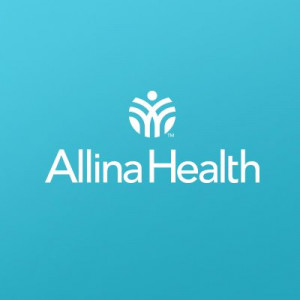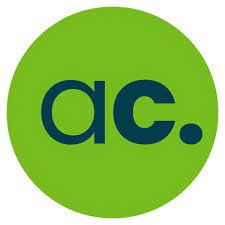Number of Job Openings Available:
1
Date Posted:
January 23, 2024
Department:
78007300 Home Care
Shift:
Day (United States of America)
Shift Length:
8 hour shift
Hours Per Week:
0
Union Contract:
Non-Union
Weekend Rotation:
Other
Job Summary:
Nursing is the diagnosis and treatment of human response to actual or potential health problems. This includes establishing an intentional therapeutic relationship between a registered nurse and a patient and family. As a leader and the integrator of care, the professional nurse has the responsibility, authority, and accountability for planning, coordinating and evaluating the patient’s care needs.
Provides nursing care to patients and families needing rehabilitation, medical intervention, advanced illness, or end-of-life care.
Key Position Details:
Job Description:
Principle Responsibilities
- Assessment.
- Collects, prioritizes and synthesizes comprehensive data pertinent to the patient's health or situation.
- Collects and prioritizes data in a systematic and ongoing process that involves the patient, family, other health care providers and environment as appropriate.
- Integrates data relevant to the situation to identify needs, patterns and variances.
- Uses appropriate evidence based assessment techniques and instruments in data collection.
- Diagnosis.
- Analyzes assessment data to determine nursing diagnoses.
- Interprets assessment information to identify each patient's needs relative to age, developmental stage and culture.
- Formulates, revises and resolves nursing diagnoses that reflect the current patient status.
- Validates and communicates nursing diagnoses with the patient, family and other health care team members.
- Documents nursing diagnoses in compliance with the patient care guidelines.
- Outcomes Identification.
- Identifies expected outcomes individualized to the patient.
- Establishes, in the collaboration with the family, patient, realistic and measurable patient expected outcomes based on nursing diagnoses, patients present and potential capabilities, goals, available resources and plan for continuity of care.
- Planning.
- Develops a plan that prescribes interventions to attain expected outcomes.
- Develops an individualized plan considering patient characteristics or the situation as appropriate in conjunction with the patient, family and others.
- Establishes a plan that provides for continuity of care.
- Incorporates evidence based nursing practice takes into consideration current statutes, rules and regulations when developing the plan of care.
- Implementation.
- Implements the identified plan.
- Implements interventions in a safe, timely, appropriate manner.
- Utilizes evidence-based interventions and treatments specific to the diagnoses as appropriate.
- Coordinates implementation of the plan of care if appropriate
- Documents interventions according to documentation guidelines.
- Evaluation.
- Evaluates the patient’s progress towards attainment of the outcome.
- Evaluates the patient’s/family’s understanding of and response to the plan of care.
- Utilizes systematic and ongoing assessment data to revise diagnoses, outcomes and the plan of care.
- Involves the patient, family, and health care team members in the evaluation process when appropriate.
- Documents revisions in diagnoses, outcomes and the plan of care according to documentation guidelines.
- Quality of Practice.
- Systematically enhances the quality and effectiveness of nursing practice.
- Participates in quality improvement activities related to nursing practice.
- Incorporates available QI data to improve nursing practice and outcome.
- Education.
- Attains knowledge and competency that reflects current nursing practice.
- Participates in educational activities related to nursing practice.
- Acquires and applies the knowledge gained from educational experiences to current nursing practice.
- Professional Practice Evaluation.
- Evaluates one’s own nursing practice in relation to professional practice standards and regulatory guidelines.
- Engages in self-evaluation of practice on a regular basis, identifying strengths and goals for professional development.
- Obtains informal feedback regarding one’s own practice from patients, peers, professional colleagues, and others.
- Collegiality.
- Contributes to the professional development of peers, colleagues, and others.
- Shares knowledge and skills in practice settings.
- Provides immediate and ongoing positive and constructive feedback to colleagues regarding their performance.
- Contributes to a supportive and healthy work environment.
- Collaboration.
- Collaborates with patient, family, and others in the conduct of nursing practice.
- Partners with others to effect change and generate positive outcomes through knowledge of the patient or situation.
- Ethics.
- Acts in an ethical manner.
- Maintains a therapeutic and professional patient-nurse relationship with appropriate professional role boundaries.
- Serves as a patient advocate assisting patients in developing skills for self-advocacy
- Uses available resources to help formulate ethical decisions.
- Research.
- Integrates research findings in practice.
- Utilizes the best evidence, including research findings, to guide practice decisions.
- Resource Utilization.
- Incorporates factors related to safety, effectiveness, cost, and impact on practice in planning and delivering patient care.
- Utilizes resources related to standards of care in a safe, effective and ethical manner.
- Manages resources to assure they will be accessible to other in the future.
- Leadership.
- Provides leadership in the professional practice setting and the profession.
- Functions as a professional role model.
- Promotes a positive work environment.
- Participates in shared decision-making.
- Environmental Health.
- Practices in an environmentally safe and healthy manner.
- Attains knowledge of environmental health concepts, such as implementation of environmental health strategies.
- Promotes a practice environment that reduces environmental health risks for workers and healthcare consumers.
- Communicates environmental health risks and exposure reduction strategies to healthcare consumers, families, colleagues and communities.
- Charge Nurse (only when acting in this role).
- Demonstrates ability to coordinate and direct unit operation so the patient and family needs are met and resources are efficiently utilized in a safe manner.
- Promotes an environment that encourages individual growth, nurtures professional practice and fosters teamwork.
- Collaborates effectively with unit staff, leadership and other disciplines.
- Preceptor (only when acting in this role).
- Demonstrates ability to identify the orientee's learning needs and plans appropriate learning experiences.
- Demonstrates ability to implement an individualized orientation plan for the orientee.
- Demonstrates ability to validate clinical competence of orientee.
- Facilitates development of organizational and prioritization skills of orientee.
- Demonstrates ability to evaluate interpersonal sills of orientee.
- Serves as a professional role model.
- Facilitated socialization of orientee into the organization and work group.
- Other duties as assigned.
Job Requirements
- Associate's or Vocational degree in Nursing required or
- Bachelor's degree in Nursing preferred
- 0 to 2 years RN experience required
- 0 to 2 years May consider new graduate RN
- 0 to 2 years homecare/hospice experience preferred
- Licensed Registered Nurse - MN Board of Nursing required if working in the state of MN upon hire
- BLS Tier 1 - Basic Life Support - Multisource required by completion of orientation
- Valid Driver’s License required upon hire - MN and WI residents must obtain a valid driver’s license in their state of residence within 60 days of employment
- CHPN Certified Hospice and Palliative Nursing preferred
- RN-BC RN Case Management preferred
- ANCC-RNCM Certification in Case Management preferred
Physical Demands
Medium Work*:
Lifting weight Up to 32 lbs. occasionally (*Allina Safe Patient Moving Policy), Up to 25 lbs. frequently









